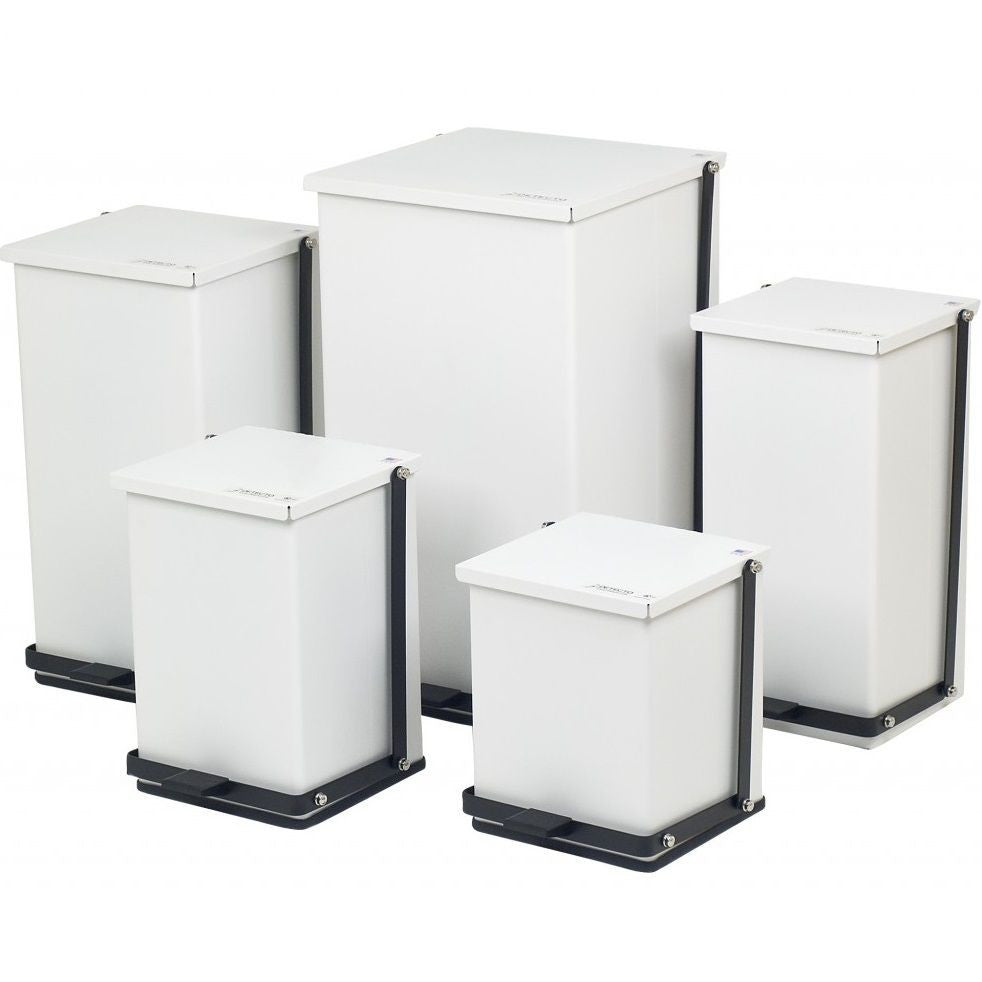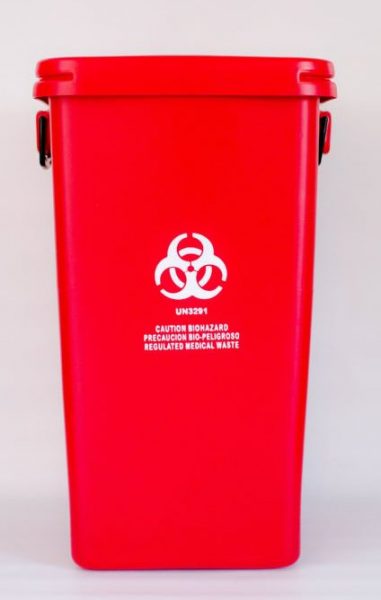Medical Waste Removal Mastery: Where Service Excellence Satisfies Health And Wellness Requirements
Medical Waste Removal Mastery: Where Service Excellence Satisfies Health And Wellness Requirements
Blog Article
The Importance of Proper Medical Garbage Disposal: An Overview for Health Care Facilities
Appropriate medical garbage disposal is a critical element of health care facility monitoring, ensuring the safety and health of individuals, personnel, and the environment. From recognizing the different groups of medical waste to abiding by governing demands, healthcare centers should take on efficient waste partition methods and choose proper disposal methods. The value of proper medical waste disposal goes past mere compliance; it is a duty that needs recurring training and education for personnel. In this overview, we will check out the numerous aspects of medical garbage disposal and highlight the important actions that healthcare facilities must take. By implementing these methods, health care centers can reduce risks, secure public health and wellness, and add to a cleaner, more secure environment.
Understanding Clinical Waste Categories
Recognizing clinical waste groups is crucial for proper disposal in healthcare centers. Medical waste is a broad term that encompasses different kinds of waste created in medical care setups, such as labs, centers, and healthcare facilities. Categorizing clinical waste assists guarantee that it is handled, saved, and disposed of securely and according to applicable laws.
There are a number of categories of clinical waste that health care centers require to be knowledgeable about. These categories consist of contagious waste, sharps waste, pharmaceutical waste, chemical waste, and contaminated waste (medical waste disposal services with WasteX). Each category has particular features and calls for different disposal methods to lessen the threat of harm to healthcare workers, individuals, and the setting
Transmittable waste, for instance, refers to lose polluted with potentially infectious products, such as blood, body liquids, and cells. Pharmaceutical waste consists of run out or extra medicines, while chemical waste consists of hazardous chemicals used in clinical treatments.
Compliance With Regulatory Requirements
Medical care centers need to make sure conformity with governing demands for proper medical garbage disposal. Regulative bodies, such as the Epa (EPA) and the Occupational Safety And Security and Health And Wellness Administration (OSHA), have actually developed guidelines and laws to guard public health and wellness and the environment. These laws describe the proper handling, storage space, transportation, and disposal of clinical waste.
Conformity with regulative demands is vital for medical care facilities to stay clear of legal penalties, reputational damages, and potential damage to human health and the setting. Failure to adhere to these laws can lead to fines, claims, and even the suspension or retraction of operating licenses.
To make certain compliance, medical care facilities must establish detailed waste monitoring programs that include team training, proper waste segregation, and using suitable containers and tags. Normal audits and assessments should likewise be performed to identify any type of non-compliance concerns and resolve them quickly.
It is crucial for health care centers to keep up to date with changes in guidelines and upgrade their waste management methods appropriately. This can be achieved by actively monitoring updates from regulative bodies and joining training programs and workshops.
Implementing Efficient Waste Partition Practices
To ensure correct medical waste disposal, health care facilities need to carry out reliable waste partition practices. Waste segregation is a vital action in the general waste monitoring procedure, as it aids decrease the threat of infection, prevents cross-contamination, and ensures the safe disposal of different sorts of waste. Effective waste segregation techniques entail dividing clinical waste into different categories based on its characteristics and prospective dangers.
One usual method is the segregation of sharps waste, such as needles and scalpels, from other kinds of clinical waste. Sharps waste must be put in puncture-resistant containers to stop injuries and prospective infections. Additionally, hazardous waste, such as chemicals and pharmaceuticals, must be separated from general clinical waste to stop environmental contamination.
Proper labeling and color-coding of waste containers are essential for reliable waste partition. Clear and visible tags must be put on each container to show the kind of waste it contains and any kind of unique handling demands - medical waste disposal services with WasteX. In addition, color-coding can be used to distinguish between different waste categories, making it less complicated for medical care staff to recognize and get rid of of waste properly
Regular training and education and learning for health care staff is important for the effective implementation of waste segregation practices. Personnel members must be enlightened on the various waste groups, proper partition techniques, and the importance of complying with waste monitoring procedures. This will help ensure compliance and consistency in waste segregation techniques throughout the center.
Finding Appropriate Disposal Methods
Proper option of proper disposal methods is necessary in making sure the secure and eco responsible management of clinical waste in healthcare facilities. Healthcare facilities produce a variety of medical waste, including sharps, contagious waste, pharmaceutical waste, and chemical waste - medical waste removal. Each sort of waste calls for specific disposal approaches to reduce the danger of contamination, injury, and environmental damage
One typical disposal approach for clinical waste is incineration. Incineration involves the controlled burning of waste at high temperatures. This approach is efficient in damaging virus and decreasing the quantity of waste. However, it can release harmful contaminants right into the air otherwise correctly managed.

Chemical disinfection is an additional method utilized for certain kinds of clinical waste, such as pharmaceutical waste. This approach makes use of chemicals to counteract or damage pollutants. It is essential to pick chemicals that are eco friendly and risk-free.
Sometimes, landfill disposal may be appropriate for non-hazardous clinical waste (medical waste disposal services with WasteX). Nonetheless, correct partition and product packaging are critical to protect against leak or contamination.
Inevitably, medical care facilities should thoroughly evaluate the features of their clinical waste and choose appropriate disposal methods that focus on safety, environmental management, and regulative compliance. Normal training and tracking are important to ensure that medical care personnel follows correct disposal procedures.

Training and Educating Team on Appropriate Disposal Treatments
Personnel education and learning and training play an essential function in ensuring the correct disposal of clinical waste in medical care facilities. It is essential that all employee, consisting of doctors, registered nurses, technicians, and assistance team, get thorough training on proper disposal treatments. This training should cover the different sorts of medical waste, their prospective threats, and the suitable approaches for handling, segregating, and taking care of them.
One of the main objectives of staff education and training official site is to make certain that all healthcare professionals comprehend the relevance of proper disposal procedures and the prospective effects of improper waste administration. They require to be familiar with the threats linked with medical waste, such as the transmission of infections and the contamination of the environment. medical waste removal near me. By understanding these risks, i was reading this personnel will be a lot more determined to adhere to correct disposal protocols and take the required safety measures to safeguard themselves, their associates, and the neighborhood
Educating must additionally cover the usage of individual protective devices (PPE) and the correct techniques for dealing with medical waste. Personnel ought to be informed on exactly how to determine and segregate different kinds of waste, such as sharps, infectious waste, and hazardous chemicals. They should also be educated on the correct use waste containers, such as sharps containers and biohazard bags, along with the relevance of labeling and securing these containers appropriately.
Additionally, personnel education and training ought to include normal updates and refresher course training courses to make sure that health care professionals stay educated regarding the most up to date policies and best techniques in medical waste disposal. This recurring education and learning is important to preserve a high degree of recognition and compliance amongst employee.
Verdict
In final thought, correct medical waste disposal is of utmost significance for medical care centers. Understanding the various groups of clinical waste and abiding with regulatory requirements guarantees the safety and security and health of both healthcare workers and the general public.
From understanding the different groups of medical waste to conforming with governing requirements, medical care centers should embrace reliable waste segregation methods and pick appropriate disposal techniques. These groups include transmittable waste, sharps waste, pharmaceutical waste, chemical waste, and contaminated waste.To make sure correct medical waste disposal, health care facilities must execute reliable waste partition practices. Waste segregation is a crucial action in the total waste management process, as it assists lessen the threat of infection, prevents cross-contamination, and guarantees the risk-free disposal of various kinds of waste. Medical care centers create a see this here selection of clinical waste, consisting of sharps, transmittable waste, pharmaceutical waste, and chemical waste.
Report this page